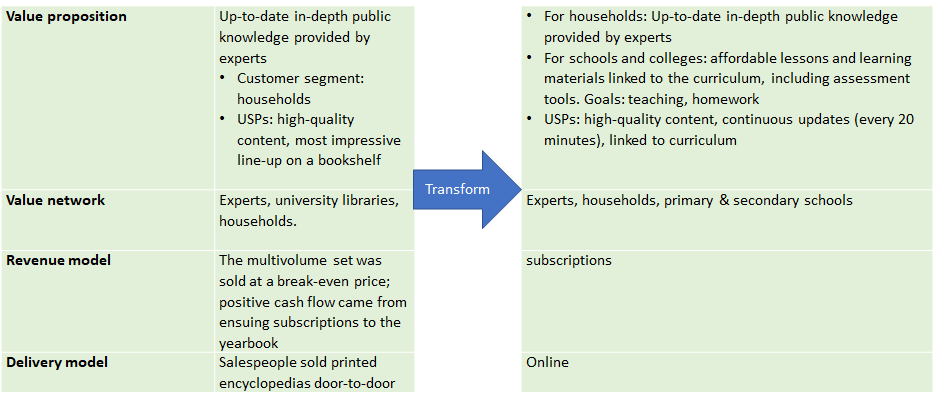Business model transformation of the Encyclopædia Britannica
The value proposition of the Encyclopedia Britannica has always been the production of a reliable source of knowledge for households. The multivolume set was sold at break-even price by door-to-door salespeople and cash was generated by the ensuing updates subscriptions.
The printed edition plummeted from 100 000 subscriptions per year to 3000 in 1995. With the advent of the internet, alternative sources of information became available to households and the door-to-door sales model did not work anymore. The door-to-door salesforce was dismantled in 1995 (Cauz, 2013). Encyclopedia Britannica went online and created a new offering for schools: affordable lessons with high-quality content for schools, integrated in the curriculum, with assessment tools. Online subscriptions by households and teaching material for schools generated so much content that by 2012, the printed edition (4000 copies per year) accounted to 1% of revenue and was terminated.
The revenue model is still subscription based, but the value network now includes schools. The delivery model shifted from offline to online.

